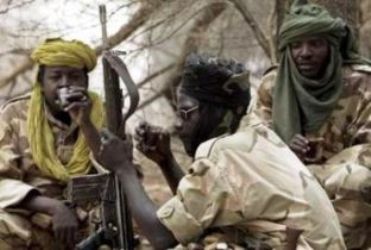Khartoum and Juba agree to immediately end support to rebel groups
August 1, 2013 (KHARTOUM) – Sudan and South Sudan security committee agreed to stop all forms of support to rebel groups and established a joint team to investigate claims and complaints from both sides.

A statement released in the first hours of Thursday morning by the Sudanese official news agency (SUNA) said the meeting agreed to cease immediately any support or harbouring to rebel groups from both sides, and to prevent rebels or support for them from crossing the common border.
The joint communiqué also provided that the two countries further agreed to prevent the issuance of travel documents to the members of rebel groups, and to not harbour elements that threaten the security of the two countries.
More important, for the first time, the two delegations agreed to form a joint team to investigate any breaches of the agreements signed between the two countries. They also they approved the procedures and terms of reference of the work of this operational team.
Khartoum kept saying during the past months that Juba violates the security agreement signed on 27 September 2012 and accused the South Sudan’s government of continuing to provide support and harbour rebels of the Sudanese Revolutionary Front (SRF).
Sudanese president last May went further to order to suspend the implementation of all the nine cooperation agreements saying they cannot allow the exportation of the Southern oil while Juba supports the rebels to overthrow his regime.
South Sudan denied the claims and alleged that its northern neighbour backs a rebel group in Jonglei state headed by David Yau Yau.
However the two parties under the growing pressure of the international community and because of their need to the revenue generated by oil industry agreed to consider seriously this situation.
In line with this deal, Khartoum will not stop the flow of South Sudanese crude to the international market.
The implementation of this agreement which was negotiated by of the military intelligence services managing support operations, is expected to pave the way to negotiate issues related to the border disputed areas and Abyei referendum.
regarding the centreline of the demilitarized zone, the two sides agreed to withdraw their troops from the disputed border areas and redeploy troops in line with the map proposed by the African mediation.
They also agreed to activate the related mechanisms such the border monitoring mechanism and a committee on Mile 14 area, and to cooperate fully with the committees established this month by the AU Peace and Security Council on this respect.
The two parties also said they will direct the military information services and encourage the independent media to deal positively with the common issues in order to “serve the higher interests of the two countries”.
The Joint Security Committee will convene its third meeting in Khartoum on 15 August.
(ST)
